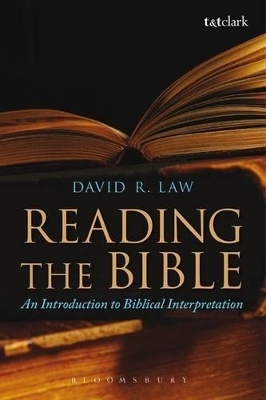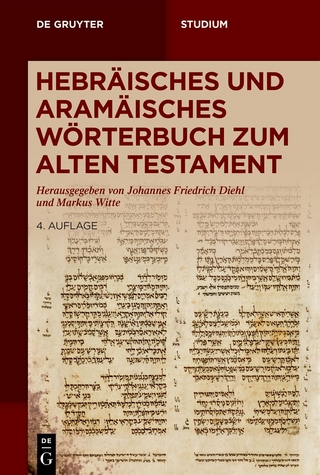
Reading the Bible
An Introduction to Biblical Interpretation
Seiten
2025
Continuum International Publishing Group Ltd. (Verlag)
978-0-567-03411-3 (ISBN)
Continuum International Publishing Group Ltd. (Verlag)
978-0-567-03411-3 (ISBN)
- Noch nicht erschienen (ca. November 2025)
- Versandkostenfrei innerhalb Deutschlands
- Auch auf Rechnung
- Verfügbarkeit in der Filiale vor Ort prüfen
- Artikel merken
Reading the Bible aims to provide a comprehensive, readable, and accessible guide to the diverse methods of biblical interpretation. The book falls into two parts.
Part One 'What is Biblical Interpretation?' deals with basic issues concerning the interpretation of texts. Questions encountered include: 'What is interpretation?' and 'What does it mean for a text to have meaning, and how do we identify its meaning?' Part One of the book also discusses the role of 'pre-understanding', i.e., the way our cultural background and personal interests affects the way we read texts. Attention is paid to the problem of cultural and temporal time-gap. A further concern in this chapter is to introduce readers to such technical terms such as 'hermeneutics, ' 'exegesis' and 'eisegesis, ' 'semiotics, ' and diachronic and synchronic approaches to the interpretation of texts.
Part Two, which forms the bulk of the book, provides a description of the main theories of biblical interpretation. Each chapter is divided into easily comprehensible sections, and examples of each method in practical application to the same two Old Testament and New Testament texts (Gen. 2.4b-3.24; Matt. 15.21-28) are provided. By seeing the different results that arise from applying the various methods to the same two texts, readers will gain a clear idea of how a particular method works and how it is distinct from other methods.
Part One 'What is Biblical Interpretation?' deals with basic issues concerning the interpretation of texts. Questions encountered include: 'What is interpretation?' and 'What does it mean for a text to have meaning, and how do we identify its meaning?' Part One of the book also discusses the role of 'pre-understanding', i.e., the way our cultural background and personal interests affects the way we read texts. Attention is paid to the problem of cultural and temporal time-gap. A further concern in this chapter is to introduce readers to such technical terms such as 'hermeneutics, ' 'exegesis' and 'eisegesis, ' 'semiotics, ' and diachronic and synchronic approaches to the interpretation of texts.
Part Two, which forms the bulk of the book, provides a description of the main theories of biblical interpretation. Each chapter is divided into easily comprehensible sections, and examples of each method in practical application to the same two Old Testament and New Testament texts (Gen. 2.4b-3.24; Matt. 15.21-28) are provided. By seeing the different results that arise from applying the various methods to the same two texts, readers will gain a clear idea of how a particular method works and how it is distinct from other methods.
David R. Law is Reader in Christian Thought in the School of Arts, Histories and Cultures, at the University of Manchester. He is author of Inspiration (Continuum, 2001) and Briefly: Sartre's Existentialism and Humanism (2007).
| Erscheint lt. Verlag | 13.11.2025 |
|---|---|
| Verlagsort | London |
| Sprache | englisch |
| Maße | 156 x 234 mm |
| Gewicht | 454 g |
| Themenwelt | Religion / Theologie ► Christentum ► Bibelausgaben / Bibelkommentare |
| Religion / Theologie ► Christentum ► Kirchengeschichte | |
| ISBN-10 | 0-567-03411-9 / 0567034119 |
| ISBN-13 | 978-0-567-03411-3 / 9780567034113 |
| Zustand | Neuware |
| Haben Sie eine Frage zum Produkt? |
Mehr entdecken
aus dem Bereich
aus dem Bereich
Buch | Softcover (2021)
De Gruyter (Verlag)
29,95 €


